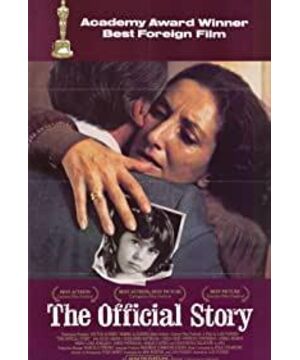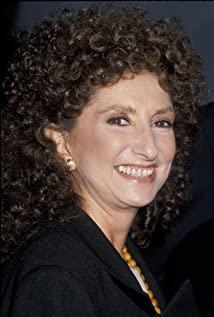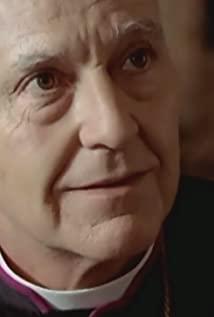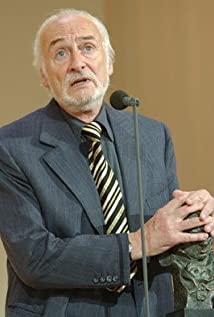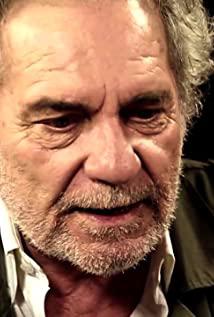This is a political film that deeply reflects Argentina's social and historical issues and has aroused strong repercussions around the world. The film is a painful reflection of a nation after a major catastrophe, a wake-up call for politically numb people, a memo for forgetful people, and a crusade against criminals.
In 1975, the right-wing totalitarian military coup d'état took place in Argentina headed by Videla, which pushed history to the most brutal, darkest, and longest page. In order to maintain its unpopular rule, the military government carried out bloody repression on the Argentine people inhumanely, resulting in nationwide white terror and appalling persecution. During the nearly eight-year military dictatorship, tens of thousands of people have mysteriously disappeared, died or went into exile. After the literati government represented by Alfonsin came to power, it implemented the process of democratization in the country, but it did not seriously clean up and solve the many problems caused by the dictatorship period.
The director of the film, Puenso, once told reporters when talking about the filming of the film: Argentina has always had two kinds of history, one is the real history, the real story, and the other is the distorted version published by the authorities through strict censorship. History, the official statement. The title of the film is ironically in response to this fact. The director wrote the heroine of the film as a history teacher. History lacks associations with reality, and it will only be a rigid record of behavior. People lack understanding of reality and can only be regarded as living stubbornly. This is exactly what the heroine left us with at the beginning of the film. She accepts the official statement, and has never thought deeply or doubted about her life, her husband's past and present, the process of her daughter's adoption, and everything that is going on around her. Arisia indirectly became the perpetrator of the survivors' pain because she was blinded by all the happiness in front of her: a lovely daughter, the superior living conditions of the middle class, and the logic of thinking trained in history textbooks. It is the painful experience and inadvertent suggestion of a friend, the living faces of the relatives of the demonstrators and the missing person in the photo, revealing to her the dark side of the world, this is the external force of the heroine's spiritual change, A woman's unique sensitivity to children finally contributed to her determination to break the cage of lies. This is the inner strength of the heroine to complete her position and emotional transformation. The director said that although he was not directly persecuted, he gradually gained a clear understanding of what was happening in the country after he had heard and witnessed the facts and thought carefully about the experience of his family, relatives, friends and colleagues in the past few years. Seeing that many people still deny the horrors that existed during the dictatorship, do not even believe that countless persecutions occurred, or close their eyes and deny it, he feels a sense of historical responsibility to make such a film. He believes that as long as the truth is not revealed, as long as all those involved in the disappearance, even the last one, are not discovered and punished, the issue of Argentine disappearances will not be left alone. On the contrary, as long as those concerned are not brought to trial, the issue will hang over the future of the nation like a ghost. Not punishing a few enforcers is tantamount to punishing the majority of citizens. Anyone who wants to live should look back with hatred on the bloody history of mass slaughter of people in the past. "We are the ones who lived through that history. While we are powerless to stop the wheel of history turning back, many of us are directly or indirectly accomplices in causing havoc. We must analyze how we allow This happened." The film was made to show people that even collective injustice cannot dilute individual responsibility. Otherwise, no one can guarantee that similar tragedies will not repeat themselves in the future history . It doesn't make it clear who the child belongs to at the end of the film, because everyone's situation is different and there can be no solution. But not providing a solution does not mean that there is no ending. The ending is the change of the protagonist, who discovers her position, realizes the falsity of official accounts and history textbooks, and finally parted ways with her husband, a supporter of the military government, and walked out. A history full of hypocrisy and a reality of flattery.
Although the film is a very political film, it does not follow the pattern of general political films. Except for a few demonstration scenes, there are not many inflammatory political slogans or dialogues in the film, and it does not deliberately promote the political views of a certain party or faction, but through conversations in daily life, everyone naturally reveals their own reality. Positions and likes and dislikes. Regarding the various physical torture, torture and mental torture and destruction suffered by the victims represented by Anna, the film only expresses it plainly through Anna's mouth, and does not even use a flashback scene. Consciously avoid bloody, violent, and terrifying scenes that will cause strong sensory stimulation to the audience. From beginning to end, the film moves the story forward around Arisia's daily life. Every scene is so plain and natural, almost indistinguishable from real life. It is the details of this daily life that make people's minds violently impacted and shocked, which is the success of the film.
With its unpretentious narrative style, the film brings people to the cruel historical reality through the heroine's spiritual journey. This film is not the director's debut, he has not only made many commercials before, but also made some feature films and TV films. It is not that he is ignorant of various artistic techniques and the use of montage, but he firmly believes that the use of this style in the film will be successful. Sure enough, after the film came out, it was welcomed by the broad audience and generally recognized by the international film industry.
The film does not follow the traditional dramatic method, deliberately through the weaving of plots and the use of props, artificially causing contradictions and intensification of contradictions, but naturally advances the contradictions according to the changes and course of the heroine's soul. Alicia and her girlfriend Anna met unexpectedly after many years of separation. Naturally, they would freely recall their respective lives after the breakup. Naturally, they talked about those happy moments, so the two burst into knowing laughter from time to time, even haha. laugh. When Aricia asked about Anna's life after the breakup, both of them had smiles on their faces. From the beginning to the end of Anna's story of her unfortunate encounter, Aricia's facial expressions changed from smiling to consternation, from consternation to consternation. Serious, from serious to sad, painful. This natural transition of expressions does not use artistic means such as close-ups, nor does it give the actors time to accumulate emotions. The scene is so bland on the surface, but it has a strong effect of shocking people's hearts. When Aricia felt sympathy for her girlfriend's misfortune, Anna inadvertently talked about the mysterious disappearance of many children. Alicia's expression became so complicated and rapid in an instant, from sympathy to embarrassment, from embarrassment to disgust, and then down. Eviction order. The whole scene is handled in a delicate and nuanced way, without any revelation or foreshadowing of the outburst of contradictions. It is precisely the conflicts and contradictions caused by this nature that have no sense of far-fetched jumping, and deeply touched the hearts of the audience. This is not only the director's success, but also enough to show the profound skills of the two actresses. When it comes to the performance of the actors, I can't help but introduce Norma Aleandro, who plays the heroine. She was born into an artistic family in Buenos Aires. Her father's nurture made her love art since she was a child. She performed on stage at the age of 6 and performed on the radio at the age of 13. She has starred in many classic plays by Cervantes, Shakespeare, etc., such as "The Story of Punishing the Evil and Promoting the Good", "Pretty Don Diego", "Romeo and Juliet", "The Merchant of Venice", etc. She won the Best Dramatic Actress Award 2 times and the Martin Fierro TV Performance Award 9 times. She is not attractive, but she is versatile, comprehensible and has a wide range of dramas. Her superb performance in "Official Statement" has made her well-known in the film industry.
In order to make this film, the director not only collected information from various sources, but also visited many fields and families. He started writing the script in 1983, and later found Aida Potnick, who had been exiled abroad, to work with him, and he changed the script three times. Filming began in 1984, and although it had entered a period of democratic progress, the crew still took huge risks. The male and female protagonists are all characters on the blacklist during the military regime. Norma Alleandro, who has spoken out against the military government, has had her home and the theatre where she works bombed. She, the hero and the screenwriter had been in exile for many years and were threatened with death at any time. During the filming process, the screenwriter himself and the mother of the actor who played the child received many threatening letters and anonymous phone calls, and the funding for the filming was also very difficult. However, the director and the crew finally dedicated this masterpiece of art to the audience with a strong sense of responsibility and a serious and responsible spirit.
"Official Statement" won the first Academy Award for the Argentine film industry, greatly inspired the Argentine film industry, and injected a strong vitality into the recovery of the long-shrinking Argentine film industry.
View more about The Official Story reviews


